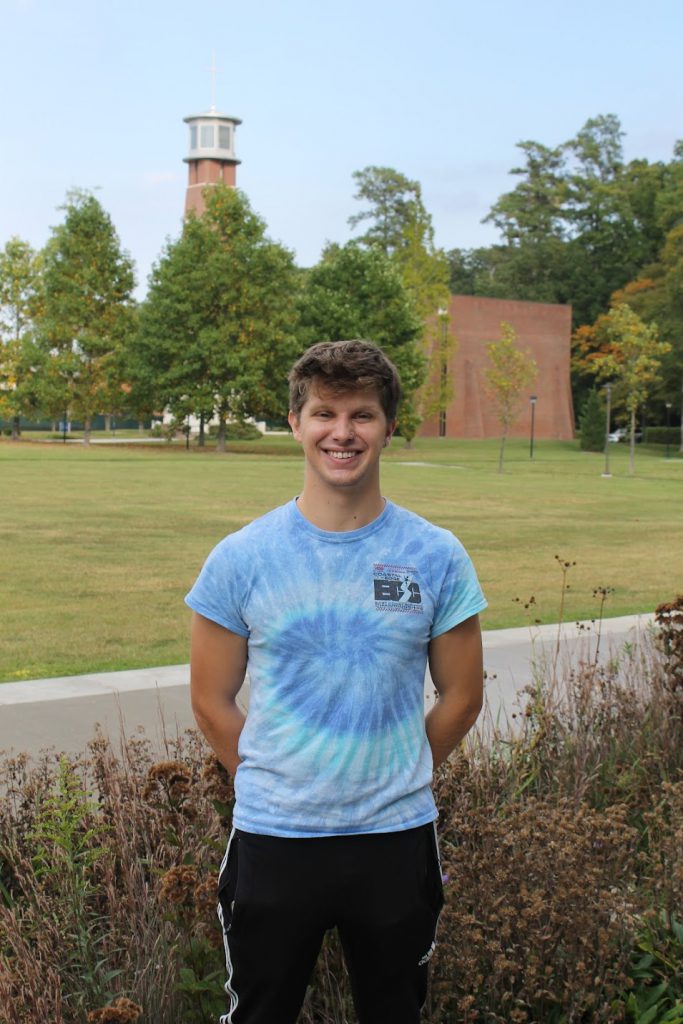Hello, my name is Ali Coutu. I am a disabled United States Navy Veteran and a senior here at Virginia Wesleyan studying for a fine arts degree.
Throughout my six years in the service, my mental health journey has been a steep one.
When I was in the military, I felt like I had no reason to be alive; however, thanks to art, I am grateful for the life I am currently living. There are no words in the dictionary that express mental health in the same way that fine arts allows me to express my experience and journey. Being at VWU has definitely challenged my mental health and my range of capability, especially in these times of COVID-19.
Let’s state the obvious. College is hard.
College is even more complicated when you add all of the implications of a disease killing thousands of people every day. The struggle lies in how we cope with this new reality of no friends or little human interaction coupled with the stress of getting a degree and passing all of your classes.
How do you make friends as a freshman coming into the school being told you can’t hang out with anyone? How do you identify people if you’ve only met half their face once in your class? How do you grow as a person when you’re told you’re not allowed to grow?
These questions have gone unanswered from day one of my Virginia Wesleyan experience and will probably remain unanswered, which causes myself and others to have to cope with the reality that we will be isolated, alone, and on our own to figure out how to feel normal.
The way I chose to cope is through art.
There is something about the arts that you can lose yourself in the moment and live for what you are making. Whether that’s a drawing that looks like a five-year-old drew it or a sculpture that belongs in museums, art doesn’t have to be good to help you cope with mental struggles.
I started 3D sculpting last year, starting in glass; my disability has improved dramatically since doing so.
A year of glass experience has proven that in a society of being so isolated and alone, there are still communities out there who, while following the same CDC guidelines, create and foster a creative and inviting environment for new students.
With this as a tool for coping with my mental health struggles, I was gradually able to open up and begin ceramic sculpting. The community only grew, and the pottery studio on campus has become my new sanctuary.
Last semester, I struggled more than I am even willing to admit, and I saw that same struggle in the staff and the students.
I knew I wasn’t alone, but I also knew I had no way to express myself due to this new reality of COVID-19 that we live in.
Last semester, I created two pieces that depicted what I felt and what I saw from my fellow students. The first sculpture is called “Useless Failure,” and the other is “Don’t Believe the Lie.” Both depict the vision I had of what it was like the last month of fall semester 2021.


Alison Coutu brings mental health awareness in her sculpture
titled, “Don’t Believe the Lie.” (Front and Back)
Alison Coutu | Courtesy
I enjoy creating and sharing these sculptures because it allows doors to open and for students to express what they are going through when they can relate to the artwork being made.
In the development of these sculptures, I was constantly stopped by students who expressed that they felt the same way as the sculptures and how the sight of them moved them.
That is what art is all about, the unspoken connection that we all have.
We are all struggling, we are all scared, and we are feeling more alone thanks to COVID-19. I am so glad I have art and the fantastic community of artists behind me to motivate and help me cope with our new reality.
Ali Coutu began her academic career as a business major until her fiancé encouraged her to pursue art, which led her to attend Virginia Wesleyan as an art major. She combines her study of business and art in running her own art business which she has plans for expanding.
By Alison Coutu
amcoutu@vwu.edu

